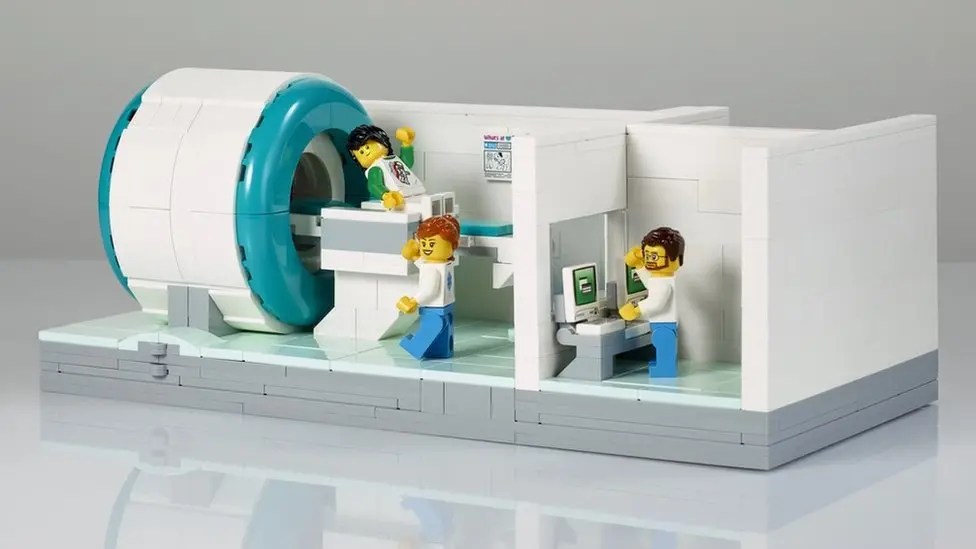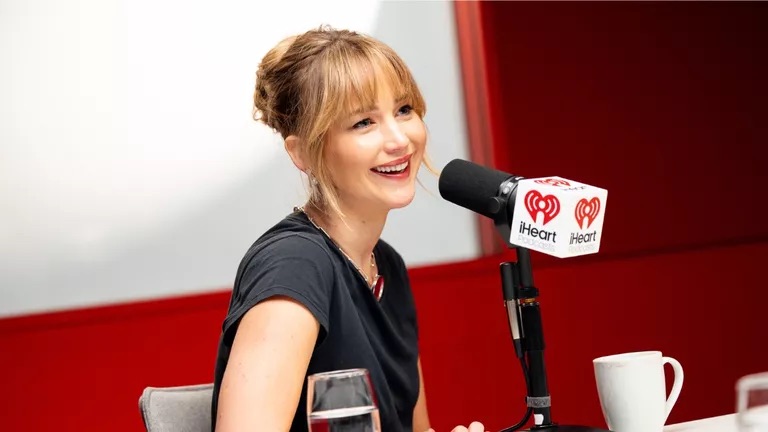
Inside The LEGO Kit Helping Over One Million Pediatric Patients Overcome MRI Anxiety Through Play-Based Learning
By Erin Whitten
The LEGO Group’s MRI Scanner has become one of the latest examples of how play can improve pediatric healthcare delivery. One seemingly small collaboration between a LEGO employee and a hospital in Odense, Denmark ended up expanding into a global program that is helping hospitals around the world use play to support young patients. The set has been shown to help reduce fear, improve cooperation, and decrease sedation in medical imaging across clinical sites.
The MRI initiative began as an idea to build a miniature version of an MRI machine. Erik Ullerlund Staehr joined forces with medical experts in 2015 with the goal of building a model that could replace the anxiety surrounding MRI procedures with curiosity and reassurance. MRI scans are an important part of pediatric healthcare because they can be used to observe soft tissue and blood vessels without radiation. The long tube, loud acoustic noise, and the need to stay very still make MRI machines intimidating and difficult for young patients to tolerate. Clinicians found that the chance to play with a detailed model prior to their procedure demystified the experience. Children showed familiarity with the machine, lessened anxiety, and were better able to anticipate what would happen during the scan. A small proof-of-concept pilot was an early success in Odense, where it was integrated as part of hospital standard procedures to welcome hundreds of children each year.
Building on success in Odense, the LEGO Foundation officially expanded the program in 2022 with a promise to donate 600 models to hospitals around the world. The distribution has grown substantially in 2023 and 2024, with more than 10,000 MRI models donated through healthcare focused partners including Fairy Bricks, Starlight Children’s Foundation, and United Way. Hospitals receive the MRI model, step-by-step training materials, and educational videos as part of an intentionally created package with videos and play materials that provide a simple and easy-to-understand way for hospital staff to lead children through the experience using the principles of role play and storytelling.
Supporting this impact is new global research published in 2025. A survey of 430 healthcare professionals in 13 countries showed that 96% had observed reduced anxiety levels in children who had the chance to explore the LEGO MRI model. Practically half of respondents also saw a drop in sedation or general anesthesia for young patients. This is an important outcome since sedation and anesthesia has its own risks, requires additional staffing and resources, and can be difficult to administer in hospitals where resources are limited. Families also reported a more positive hospital experience overall, while clinicians noted that children were more curious, cooperative, and emotionally self-regulated during imaging preparation when they had a chance to play with the model.
The LEGO MRI Scanner set is not commercially available at this time. It is designed specifically for the clinical environment and is not sold outside of that. It is provided at no cost to eligible hospitals in order to keep the focus on the project’s goal of supporting vulnerable children by giving them an opportunity to learn and prepare for an experience that might otherwise be intimidating or scary. The MRI program’s growth is a testament not just to the LEGO MRI set’s value, but also to the understanding by medical professionals and caregivers around the world that psychological preparation is as important as physical care when it comes to pediatric medicine.











